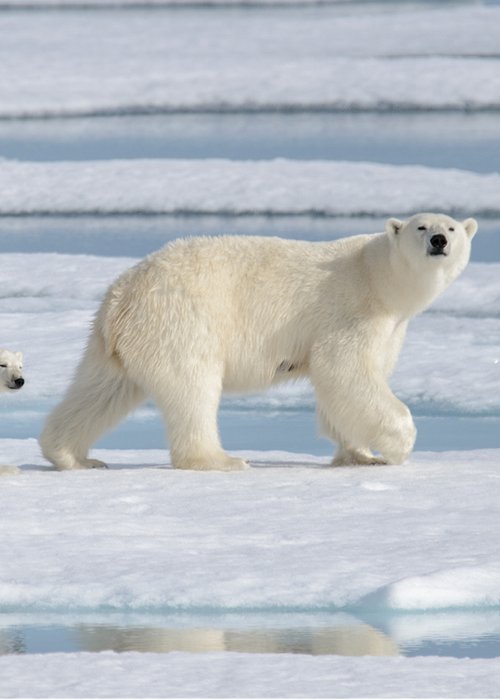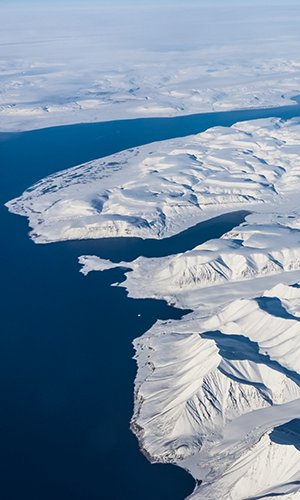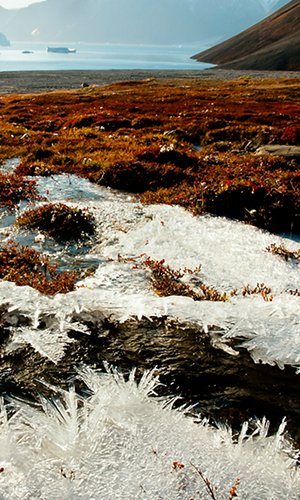World Polar Bear Day, established to raise awareness of the extremely difficult conditions in which this animal, threatened daily by pollution and global warming, is forced to live, is celebrated today. Polar bears are marine mammals whose lives depend on ice, where they spend most of their time, so they can move freely across vast territories and set out in search of food. Yet the relentless melting of the polar ice caps and the gradual disappearance of ideal habitats for polar bears are seriously threatening the survival of this species. Arctic glaciers are shrinking by 13% every ten years and with them the habitat in which the polar bear – the largest terrestrial carnivore and also one of the most threatened animals by the impacts of climate change – lives, breeds and hunts, is disappearing.
The polar bear has been red-listed by the International Union for Conservation of Nature (IUCN) as a vulnerable species. This classification takes into account several factors, including the reduction of individuals of reproductive age, population fragmentation, and overall population reduction in recent generations. Bears are slow to reproduce; in fact, they reach sexual maturity around age 5, but start breeding around age 8/9. The cubs are then weaned around the age of 3, so females do not start mating again before that time. It is therefore of paramount importance to protect mothers and their cubs, especially in the earliest moments of life, the most critical. Polar bear cubs are born between November and January in dens hidden under the snow. They are blind at birth, weigh just over a kilo and have only a light layer of fur to protect them from the cold. The mothers and their cubs stay in their den until spring, when the latter are finally old enough to survive Arctic conditions.
To find out more:





